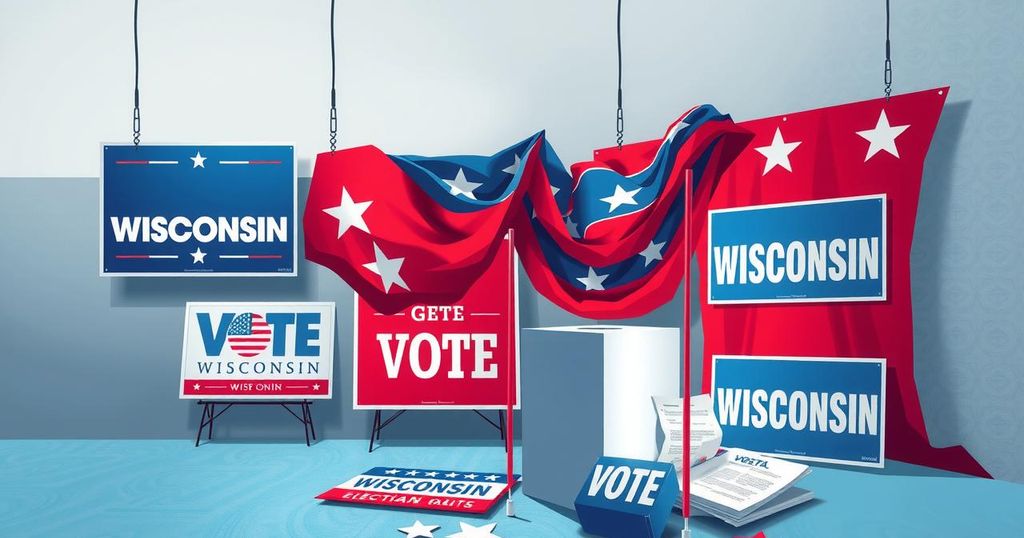Cars
World news
2024 PRESIDENTIAL ELECTION, AFRICA, ASSOCIATED PRESS, DEPARTMENT OF GOVERNMENT, DONALD TRUMP, ELECTION, FOX NEWS, GHANA, LEGISLATION, MUSK, NORTH AMERICA, POLITICS, PRESIDENTIAL ELECTION 2024, SCHIMEL, SUPREME COURT, SUSAN CRAWFORD, TESLA, TRUMP, UNITED STATES, WA, WHITE HOUSE, WIS, WISCONSIN
Fatima Alavi
0 Comments
Liberal Candidate Projects Victory in High-Stakes Wisconsin Supreme Court Election
In Wisconsin’s Supreme Court election, Judge Susan Crawford is projected to defeat Brad Schimel, protecting a progressive majority. The historically expensive election has drawn significant funding from both sides, making it a referendum on Trump and Musk’s influence in politics. The outcomes could have lasting impacts on crucial issues, including redistricting and voting rights.
The liberal candidate is poised to secure a pivotal victory in the Wisconsin Supreme Court election, which has seen unprecedented financial input, transforming it into an influential contest regarding vital democratic issues. Judge Susan Crawford is projected to defeat Brad Schimel, a conservative candidate endorsed by former President Donald Trump, thereby preserving the progressive majority in the state’s judiciary, critical for decisions on topics such as voting rights and redistricting.
The financial landscape of this election has been shaped by significant contributions from both liberal and conservative organizations. The infusion of funds has rendered this judicial race the most costly in American history, significantly influenced by the contrasting agendas of Trump and billionaire Elon Musk, who is known for his alignment with high-profile political interests. Musk has notably contributed around $20 million to Schimel’s campaign while publicly endorsing Trump’s policy initiatives.
Musk’s involvement extended beyond monetary contributions; he controversially distributed $1 million checks to two voters who had already voted, igniting legal challenges against him. Despite pushback from the Wisconsin attorney general, the state Supreme Court opted not to intervene, further emphasizing the contentious atmosphere of the race. Musk openly stated the election’s importance, labeling it a decisive moment in safeguarding the Trump agenda.
Schimel has positioned himself closely with Trump, actively promoting the former president’s endorsement throughout his campaign, emphasizing that voters’ decisions would directly affect Trump’s influence. Notably, Schimel engaged in an extensive campaign effort, holding numerous rallies across the state to mobilize voter turnout, supported by organizations such as Americans for Prosperity that have made significant voter contact.
Wisconsin’s political landscape has been notably shaped by the close ties between local judicial outcomes and broader electoral politics. Trump remarked on the necessity of winning Wisconsin as its Supreme Court plays a crucial role in electoral processes, highlighting the strategic significance of the state in contesting future elections. Additionally, Schimel’s campaign argued that a continuation of the liberal court majority could adversely affect Republican representation, especially concerning congressional redistricting.
Conversely, Crawford’s campaign gained momentum by rallying opposition to Trump’s policies, with progressive supporters mobilizing substantial financial backing, including substantial contributions from prominent left-leaning figures like George Soros. Crawford articulated that the election serves as a defense against external influences on the court, calling for public resistance against perceived attempts to manipulate local politics by wealthy outsiders.
As the election approaches, the significance of the contest lies not only in its immediate outcomes but also in its broader implications for national politics. The candidates vie for a seat vacated by Justice Ann Walsh Bradley, with an existing liberal majority on the Supreme Court at stake. The ardent involvement of high-profile political figures further underlines the contentious nature of this electoral battle, as both sides prepare for potential repercussions that could resonate throughout Wisconsin’s political landscape and beyond.
In summary, the Wisconsin Supreme Court election has emerged as a crucial referendum on Trump’s influence and the overarching dynamics of national politics. The projected victory for Judge Susan Crawford underscores the electorate’s desire for progressive oversight in vital judicial matters, amidst record-breaking financial contributions from diverse interests. The contest illustrates the critical intersection of local judicial races with broader electoral implications, setting the stage for future political contests in a polarized environment.
Original Source: www.foxnews.com




Post Comment